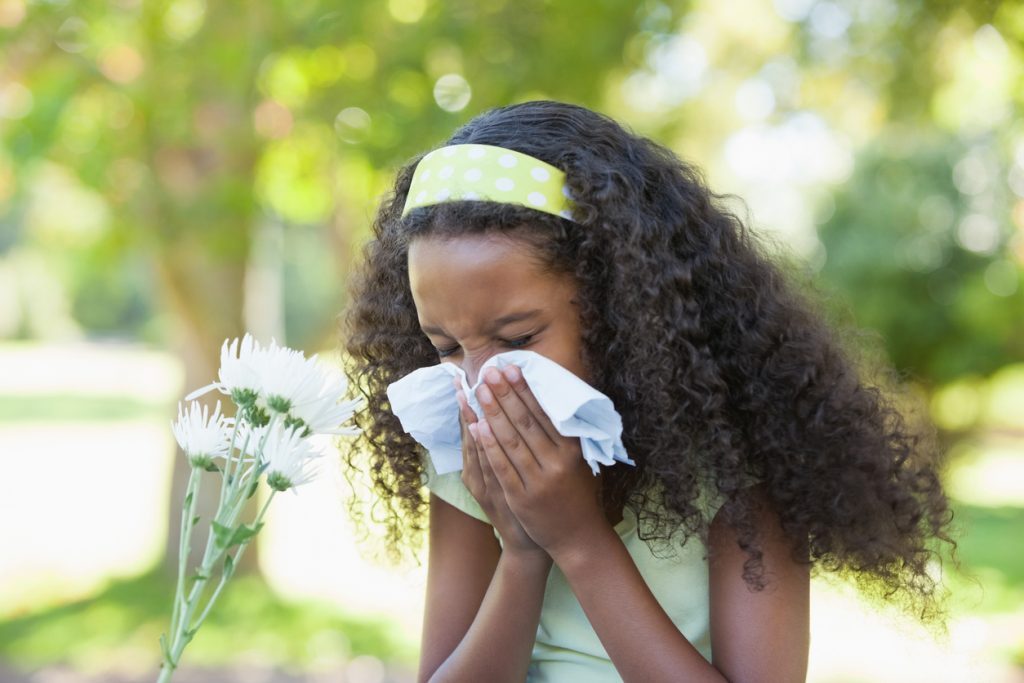You know it’s spring in St. Louis by the television commercials. “Itchy, watery eyes?” I hear in the middle of the evening newscast. Wondering which of those medications will give your puffy-eyed child a break? Here are my thoughts, both as a pulmonologist and a mom of an allergy sufferer.
Does my child have allergies?
Before you run to the store, check with the doctor. Your first step needs to be obtaining an accurate diagnosis. Kids are exposed to many viruses throughout the year, so your pediatrician can determine if the sneezing and runny nose is a cold or allergies.
Diphenhydramine (aka, Benadryl)
Definitely allergies? Time to treat those symptoms. Among the most recognizable allergy medications on the market is diphenhydramine, more often recognized by the name brand Benadryl. The little pink pills work wonders — at blocking the histamines and putting your child to sleep. For that reason, we only recommend using it to treat the occasional flare-up. Instead, consider one of the many allergy medications available for daily use.
Daily Allergy Medications
Loratadine, Cetirizine, Fexofenadine (aka, Claritin, Zyrtec and Allegra) — drug stores dedicate entire aisles to allergy medications. I could walk you through the nuanced differences of each one, but they’re essentially all the same, you just have to find the one that works best for your child. Ask your pediatrician or pharmacist for his or her recommendation, and start there. If Loratadine doesn’t work after a few weeks, call your pediatrician back or ask the pharmacist which one they would try next. But don’t break the bank on this experiment. Save yourself some money and buy generic. The only difference between name brand and generic allergy medication is the price.
Once you have found the right medication, make sure to add it to your shopping list early next year. While these medications start to help immediately, they’re most effective if your child has been taking them for a few weeks before seasonal allergies start. In our clinic, we recommend patients start seasonal allergy medicine on Valentine’s Day, for spring allergies, and at the start of the school year for fall allergies.
Prescription Medications, Immunotherapies or Allergy Shots
You’ve tried everything, and your poor kid is still miserable. Time to see an allergist. Ask your pediatrician for a referral. In our clinic at St. Louis Children’s Hospital, we test for specific allergies and offer a step-up approach to treatment. That means we’ll start with the next step up from OTC medication and find what works best for your child. In the most severe cases, children will require a series of allergy shots.
Seasonal allergies plague many of us, but they don’t have to keep your child down. With the right medication and a few environmental changes, your child can still play outside and enjoy the spring air with the rest of his friends.
Disclaimer: This post was updated on 6/1/18 to reflect current pediatric recommendations






Comments